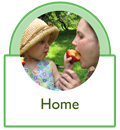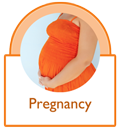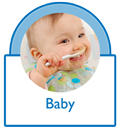Information for parents
Returning to work after having a baby usually means a change in your family’s routine. Breastfeeding is the natural way to feed your baby. Any breastfeeding is good for you and your baby. With some planning by both you and your employer, you can be supported to continue to breastfeed your baby after you return to work. Try to keep an open mind, it can take some time to work it all out. Sometimes things don’t always go to plan and that’s okay. Everyone’s situation is different. What works for you and your baby will depend on your workplace and childcare arrangements.
Here you will find a toolkit of information to support breastfeeding while working.
Options for breastfeeding while working
Your baby might attend a childcare service, or they may be cared for at home or at a carer/relative’s home.
If your baby is being cared for close to your workplace then you may choose to:
- go and breastfeed your baby as needed at either home or childcare
- have your baby brought in to feed them during your break.
If your baby is not being cared for close to your workplace then you may choose to:
- Breastfeed your baby before and after work and use expressed breast milk or an infant formula while you are at work. This can be offered to your baby in a bottle or a cup, depending on their age.
- If your child is over one year of age and having less feeds, you can offer a breastfeed before and after work (depending on your work schedule).
- Express breast milk during work hours to make sure you have a good supply available for your baby as required. See ‘Expressing and storing breast milk at work’ section below for more information.
Getting your baby ready for a new routine
Before you return to work it may be helpful to start easing both yourself and your baby into your new routine. Leaving your baby with another carer/s can be really hard, especially for the first time. It is a good idea to try to get your baby’s new carer/s to give them some expressed breast milk before you return to work. This could be through some orientation at childcare or having a practise-run with the carer who will be looking after your baby at home. This will help your baby get used to the change in their feeding routine and become familiar with their new carer/s.
Remember to not be too hard on yourself and to allow both your baby and yourself time to adjust to your family’s new routine.
What to talk to your employer about
If you plan to to keep breastfeeding, or are unsure of your feeding plans once you return to work, it is a good idea to talk to your employer about how they can support you breastfeeding in the workplace. You might like to do this before you start your maternity leave and then check-in again before you return to work. Keep in mind that your feeding plans may change and that’s okay.
If you are starting a new job after you return from maternity leave you can talk to your new employer before you start, or at a time that feels right to you. It is never too late to talk to your employer about how they can support you.
Some things to talk with your manager or HR department include:
- Your plans for breastfeeding and returning to work, including what support you will need from the workplace to do this.
- The possibility of working from home with a carer onsite, or someone bringing your baby in to the workplace to be fed during your breaks (if this is an option for you).
- Your entitlements around your work award and agreement, including flexible work hours and lactation breaks (eg paid or unpaid).
- The need for flexible working arrangements in order to be able to breastfeed and/or express milk while you work (eg shift work, field work).
- The need for a suitable place to breastfeed and/or express milk while at work (see ‘what you will need to express breast milk’ under the 'expressing and storing breast milk at work' section below).
There are many benefits of breastfeeding, not only for mother and baby but for employers too. For example, a quicker return to work after maternity leave. If you want to breastfeed or express and store your milk at work, your employer must make reasonable attempts to meet these needs.
You may find it helpful to talk to other employees who have returned to work while breastfeeding. This may help give ideas on how to best make it work for you.
For more information about breastfeeding in the workplace for employees and employers visit the Australian Breastfeeding Association’s Breastfeeding Friendly Workplaces website
What to talk to your childcare provider about
If your baby is going to be attending childcare when you return to work, it is a good idea to talk to the centre manager and staff caring for your baby about their feeding needs. Some things you might talk to them about:
- The centre’s breast milk handling practices and procedures – they will usually have a policy outlining their processes.
- If your baby has expressed milk from a bottle or cup, or a mixture of the two – this will depend on your baby’s age.
- Your ability to come in and feed your baby during your breaks at work – this might be an option for you if the childcare centre is close to your workplace.
- Organising some orientation before you start work so that your baby’s new carer/s can practise feeding your baby.
If you plan to send your baby to childcare once you return to work, it is important to contact centres early as they will often have long waitlists. Many services suggest putting your name on the waitlist while you are pregnant. If you have not done this don’t panic, there is still time to make contact with services.
Expressing and storing breast milk at work
Expressing breast milk at work can take some time to get used to. You may find it hard to juggle time for expressing milk with work commitments and/or not having your baby with you. This is understandable and does not mean you are doing anything wrong. It can take some time to work out what works best for you. Getting into a routine and being organised can help make expressing easier. Having support from your employer and colleagues can also make you feel more comfortable about taking time to express breast milk while you are at work. Remember you will not be doing this forever.
Breast milk can be expressed by hand or using a manual or electric breast pump. Using an electric pump at work can make expressing milk quicker.
You may wish to start expressing a few weeks before you return to work so that you have some expressed breast milk in the freezer as back up.
If you are expressing at work, you may like to try to express at the same time you would normally feed your baby. This can help keep your usual feeding routine and milk supply for you and your baby. This may not be possible for some people (eg you may have set breaks to express) and that’s okay. Try to keep an open mind. There are lots of different strategies you can try. Talk to your child health nurse or contact the Australian Breastfeeding Association (1800 686 268) for more information and support.
The number of feeds your baby will need during the day depends on their age. Once solid food begins to replace milk feeds, your baby will need less expressed breast milk.
What you will need to express breast milk
If you are going to express breast milk while you are at work, there are some things you will need to make it possible. These include:
- a private room with a comfortable chair and door that locks (not the bathroom or toilet area)
- a power point near the chair (if using an electric breast pump)
- a fridge or freezer to store expressed breast milk
- somewhere to wash your hands and rinse breast pump equipment
- time to express during the day – this could be during your existing meal breaks, time which is made up at the end of the day, or your workplace may offer paid lactation breaks.
How to store expressed breast milk
After you have expressed, pour the breast milk into a sterilised storage container with a lid and put in the fridge or freezer. Remember to label the container with the contents and date so that you can use the oldest milk first.
You can store freshly expressed breast milk:
- at room temperature for six to eight hours
- in the fridge for up to 72 hours
- in the freezer for up to three months
- in a deep freezer for six months to a year.
How to transport expressed breast milk
Breast milk needs to be kept at a consistent temperature when you transport it (eg take it home or to childcare).
Put your expressed breast milk in an insulated bag or container (like an esky) with an ice brick. Once you arrive, put it in the fridge or freezer straight away. If the milk was frozen and some has thawed, it should be used within four hours. Do not refreeze it.
You can find more information on expressing and storing breast milk - Expressing breast milk
Your legal right to breastfeed
Breastfeeding is protected by the law at both a state and federal level:
- the Anti-Discrimination Act 1998 in Tasmania
- the Sex Discrimination Act 1984 in Australia.
It is against the law for a woman to be discriminated against because of her choice to breastfeed, including when returning to work.
When things don't go as planned
Returning to work and breastfeeding can be more challenging than we might think. Sometimes plans to breastfeed your baby don’t always work out and that’s okay. It is important to find the right balance for you and your family.
Be kind to yourself and remember that you are doing the best you can. If you are finding the change in your feeding plans hard, it can be a good idea to talk to your child health nurse, friend or family member.
Looking after yourself
Eating well
It is important to eat well for both you and your baby’s health and development. For more information about eating well while breastfeeding
Want to know more
Ask your child health nurse or GP for personalised advice and support. To book an appointment with your local Child and Family Health Nurse, call 1300 064 544.
Call the Breastfeeding 24-hour Helpline 1800 mum 2 mum (1800 686 268) for immediate advice.
For more information about breastfeeding and returning to work








